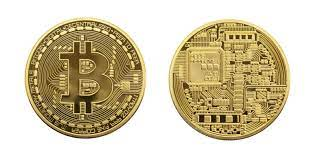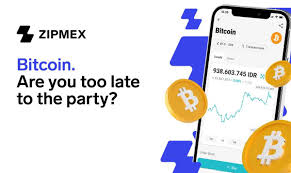Bitcoin is not only the first cryptocurrency, but it is also the most well-known of the over 5,000 cryptocurrencies in circulation today. Each new dramatic high and stomach-churning collapse is eagerly covered by financial journalists, making Bitcoin an unavoidable part of the scene.
While Bitcoin's wild volatility makes for fantastic headlines, it is hardly the greatest pick for inexperienced investors or those searching for a reliable store of value. Understanding the ins and outs of Bitcoin might be difficult—take let's a closer look at how it works.
What Is Bitcoin?
Bitcoin is a decentralized digital money that you may buy, sell and exchange directly, without an intermediary like a bank. Satoshi Nakamoto, the founder of Bitcoin, originally highlighted the need for "an electronic payment system based on cryptographic proof rather than faith."
Every Bitcoin transaction ever done is recorded on a public ledger that is available to everyone, making transactions difficult to reverse and difficult to forge. This is by design: Bitcoins are not backed by the government or any issuing institution, and there is nothing to guarantee their value other than the proof encoded into the system's heart.
Because its supply is limited to 21 million coins, many predict its price to rise over time, especially when larger, institutional investors begin to use it as a kind of digital gold to hedge against market volatility and inflation.
How Does Bitcoin Function?
Bitcoin is based on a distributed digital ledger known as a blockchain. Blockchain, as the name implies, is a linked body of data made up of units called blocks that hold information about each and every transaction, including date and time, total value, buyer and seller, and a unique identification code for each exchange. Entries are linked in chronological sequence to form a digital chain of blocks.
Blockchain is decentralized, which implies that no single organization controls it. "It's similar to a Google Doc that anyone can edit," explains Buchi Okoro, CEO and co-founder of African bitcoin exchange Quidax. "No one owns it, but anybody with a connection can contribute to it." And as different individuals update it, your copy is updated as well."
While the idea that anyone can alter the blockchain may appear unsafe, it is precisely this feature that makes Bitcoin trustworthy and secure. To be included to the Bitcoin blockchain, a transaction block must be validated by the majority of all Bitcoin holders, and the unique codes used to identify users' wallets and transactions must follow the correct encryption pattern.
Because these codes are long, random numbers, they are extremely difficult to forge. According to Bryan Lotti of Crypto Aquarium, a fraudster knowing the key code to your Bitcoin wallet has nearly the same odds as winning the Powerball lottery nine times in a row. This level of statistical randomness in blockchain verification codes, which is required for every transaction, minimizes the chance that anyone can make fraudulent Bitcoin transactions.
What Is the Process of Bitcoin Mining?
The process of adding new transactions to the Bitcoin blockchain is known as mining. It's a difficult job. Bitcoin miners employ a mechanism known as proof of work, in which computers compete to solve mathematical problems that validate transactions.
The Bitcoin code rewards miners with additional Bitcoins to urge them to keep racing to solve the riddles and maintain the entire system. According to Okoro, "this is how new coins are created" and new transactions are uploaded to the blockchain.
It used to be that the average individual could mine Bitcoin, but that is no longer the case. The Bitcoin code is designed to make solving its problems more difficult over time, necessitating more and more computational resources. To be effective today, Bitcoin mining requires fast computers and access to enormous amounts of inexpensive electricity.
Bitcoin mining is also less profitable than it once was, making it even more difficult to recoup increased computational and power costs. "When this technology was first introduced in 2009, every time you got a stamp, you got a significantly higher quantity of Bitcoin than you do today," says Flori Marquez, co-founder of BlockFi, a crypto wealth management company. "Because there are more and more transactions now, the amount you get paid for each stamp is decreasing." It is projected that by 2140, all Bitcoins will have entered circulation, implying that mining will produce no new coins, and miners may instead have to rely on transaction fees.
How to Make Use of Bitcoin
Bitcoin is commonly used as an alternative investment in Canada, helping to diversify a portfolio away from stocks and bonds. You can also use Bitcoin to make purchases, but the number of merchants who accept it is still restricted.
Microsoft, Newegg, and Overstock, which is based in the United States but ships to Canada, are among the large corporations that take Bitcoin. You might also find that some tiny local stores or websites accept Bitcoin, but you'll have to look around.
You can also utilize a service that allows you to link a debit card to your crypto account, such as the Shakepay Visa Card, which functions like a Visa card wherever Visa is accepted but converts bitcoin held in your Shakepay account into Canadian dollars on the merchant side. Other prepaid credit and debit cards are available in Canada that perform the same thing.
People in foreign nations, particularly those with less stable currencies, utilize cryptocurrencies instead of their native currency on occasion.
"Bitcoin allows people to keep value without having to rely on a government-backed currency," Montgomery argues. "It allows people to prepare for the worst-case scenario." Bitcoin is already gaining popularity in nations such as Venezuela, Argentina, and Zimbabwe—in countries that are severely in debt."
However, when using Bitcoin as a currency rather than an investment in Canada, you must be aware of some tax considerations.
How to Purchase Bitcoin.
The majority of Bitcoin purchases are made through cryptocurrency exchanges. You may buy, sell, and hold cryptocurrencies on exchanges, and starting an account is similar to opening a brokerage account—you'll need to verify your identity and give some form of money, such as a bank account or debit card.
Netcoins, Coinberry, Coinsmart, Bitbuy, Shakepay, and Newton are all major Canadian exchanges. You can also purchase Bitcoin using an online broker such as Wealthsimple.
Regardless of where you purchase your Bitcoin, you will require a Bitcoin wallet to hold it. This could be referred to as a hot wallet or a cold wallet. A hot wallet (also known as an online wallet) is stored in the cloud by an exchange or a provider. Exodus, Electrum, and Mycelium are examples of online wallet providers. A cold wallet (or mobile wallet) is a Bitcoin storage device that is not linked to the Internet. Trezor and Ledger are two mobile wallet solutions.
A few points to consider before purchasing Bitcoin: While Bitcoin is pricey, some retailers sell fractional Bitcoin. You should also keep an eye out for fees, which are often modest percentages of your cryptocurrency transaction value but can add up.
How to Make a Bitcoin Investment.
Bitcoin, like stocks, can be purchased and held as an investment. You can invest in a Bitcoin ETF if you don't want to participate in Bitcoin directly but want to profit from its volatility. On the Toronto Stock Exchange (TSX), you can currently invest in many Bitcoin ETFs, including Purpose Bitcoin ETF (BTCC), 3iQ CoinShares Bitcoin ETF (BTCQ), Ninepoint Bitcoin ETF (BITC), and Evolve Bitcoin ETF (BITC).
People's approaches to investing in Bitcoin differ depending on where they keep it: Some people buy and hold for the long term, while others buy with the intention of selling following a price surge, and yet others gamble on the price falling. Bitcoin's price has fluctuated dramatically over time, reaching as low as $5,165 USD and as high as $28,990 USD in 2020 alone.
"I believe that people are using Bitcoin to pay for items in some places, but the truth is that it's an asset that appears to be gaining in value relatively quickly for some time," Marquez explains. "So, why would you sell something that will be valued far more next year than it is today?"
However, while crypto-based funds may bring diversity to crypto holdings and reduce risk modestly, they still carry significantly more risk and demand significantly more fees than broad-based index funds with a track record of consistent results. Investors seeking consistent wealth growth may prefer index-based mutual and exchange-traded funds (ETFs).
Should You Invest in Bitcoin?
Many financial advisors, in general, support their clients' desire to purchase cryptocurrencies, but many do not advocate it unless clients express interest. "Our biggest fear is if someone wants to invest in cryptocurrency and the investment they chose doesn't perform well, and then they can't send their kids to college," says Ian Harvey, a certified financial planner (CFP) in New York City. "Then the danger wasn't worth it."
Due to the speculative nature of cryptocurrencies, some planners promote it for "side" investments for clients. "Some people refer to it as a Vegas account," says Scott Hammel, a CFP in Dallas. "Let's keep this out of our true long-term view, and make sure it doesn't become an excessively huge chunk of your portfolio."
==== All images, culled from Google image search.
















0 Comments